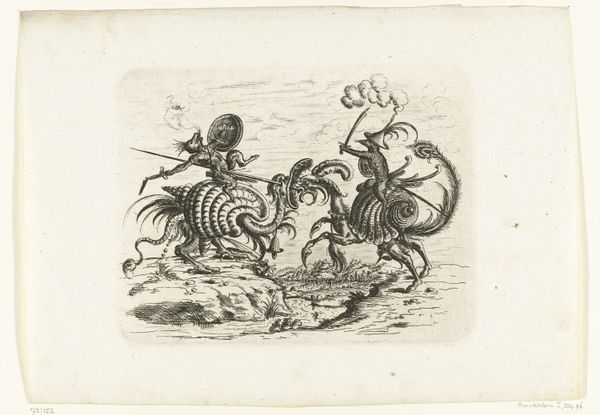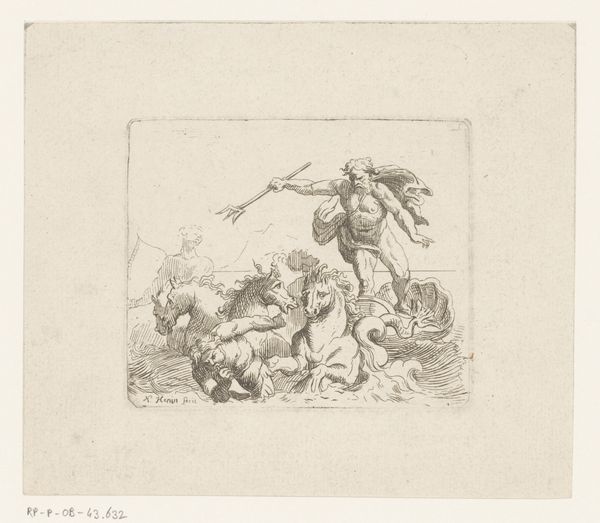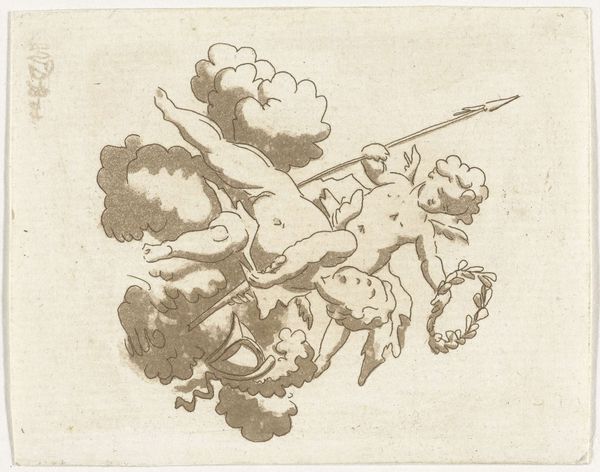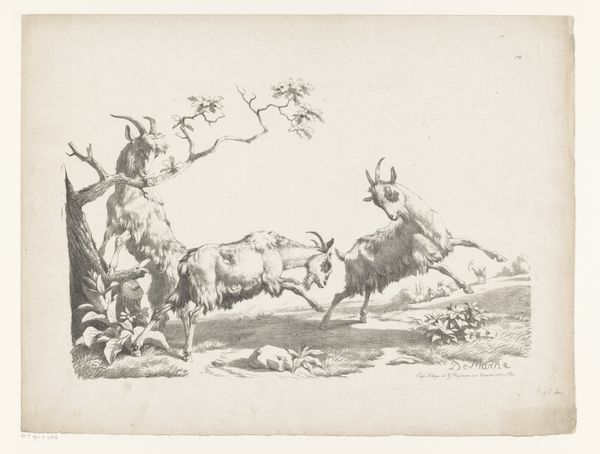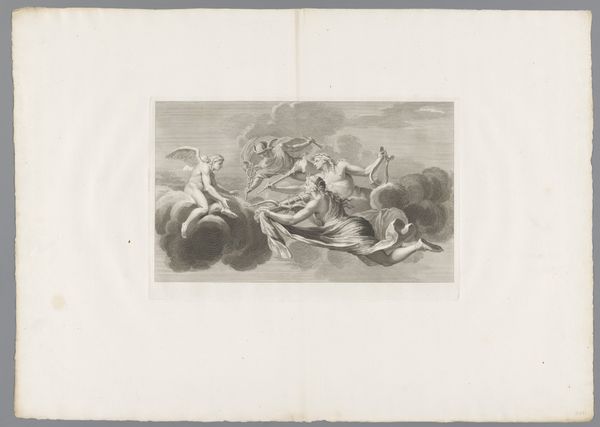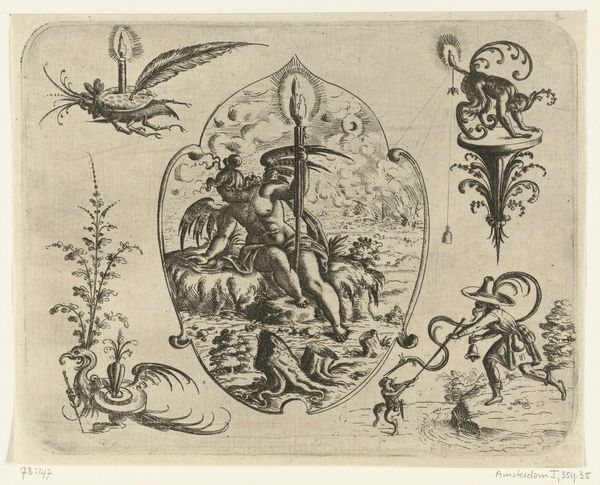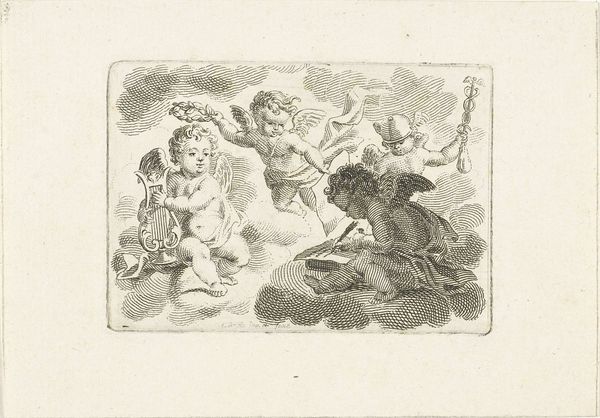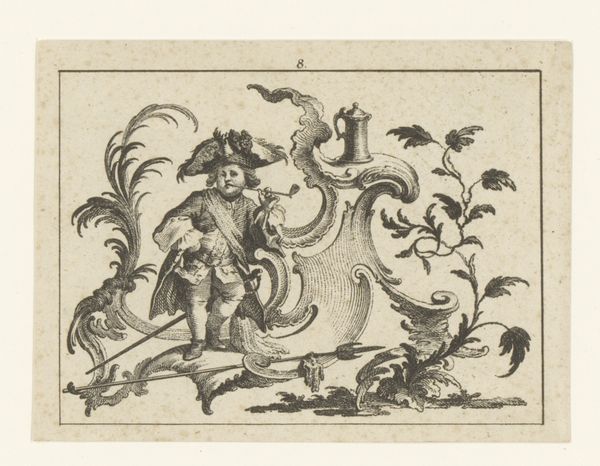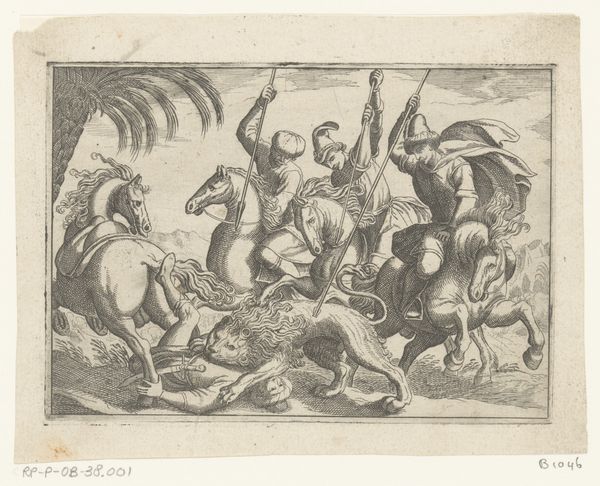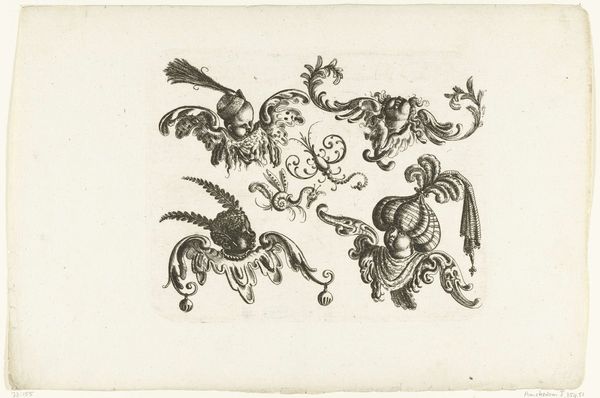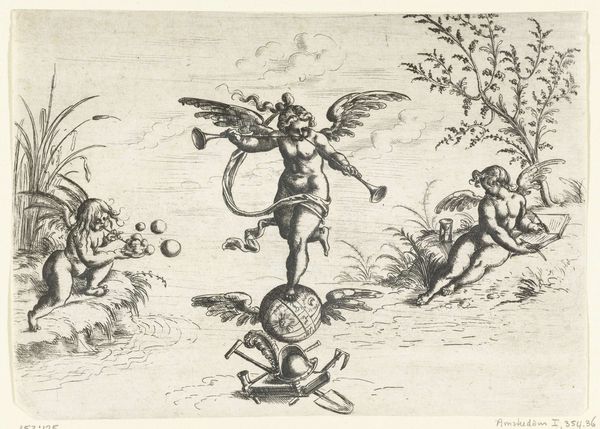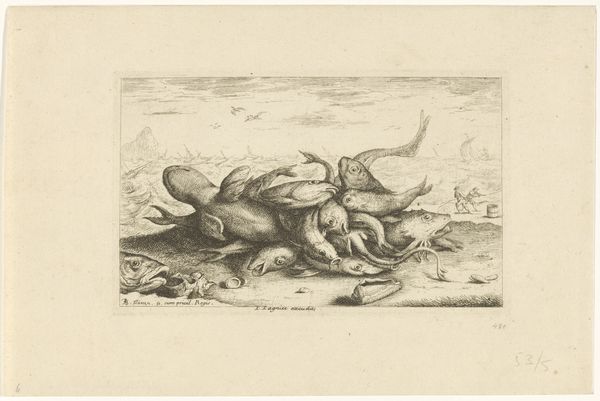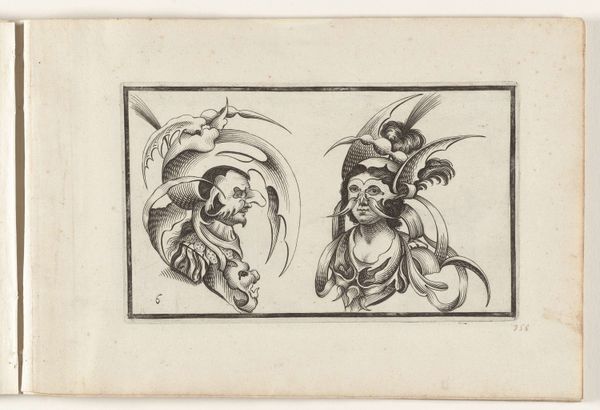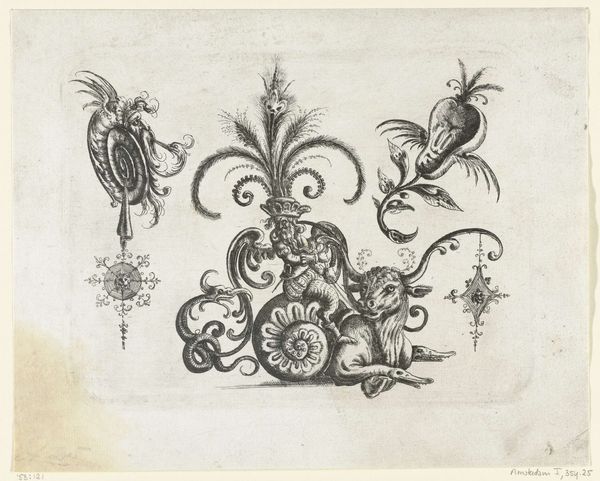
print, engraving
#
allegory
# print
#
pen sketch
#
mannerism
#
figuration
#
history-painting
#
engraving
Dimensions: height 142 mm, width 184 mm
Copyright: Rijks Museum: Open Domain
This 16th-century engraving by Christoph Jamnitzer presents us with four putti, each surrounded by symbolic objects. Observe how these winged infants are not mere decorations, but carriers of profound allegorical meaning, deeply rooted in both classical and Christian traditions. Consider the putto with the skull, a clear memento mori, reminding us of the transience of life. This motif echoes through art history, from ancient Roman sarcophagi to Renaissance vanitas paintings. Meanwhile, another putto plays a musical instrument, symbolizing harmony and divine order. This invokes the celestial concerts depicted in medieval cathedrals, where music bridges the earthly and the divine. The image of putti recurs across time, evolving from pagan cupids to Christian angels, demonstrating the human need to visualize abstract concepts like love, death, and salvation. Such recurring motifs reveal how collective memory and shared emotional experiences shape our visual language, engaging viewers across centuries. The image of these infants taps into primal emotions, reminding us of the cyclical nature of existence.
Comments
No comments
Be the first to comment and join the conversation on the ultimate creative platform.
